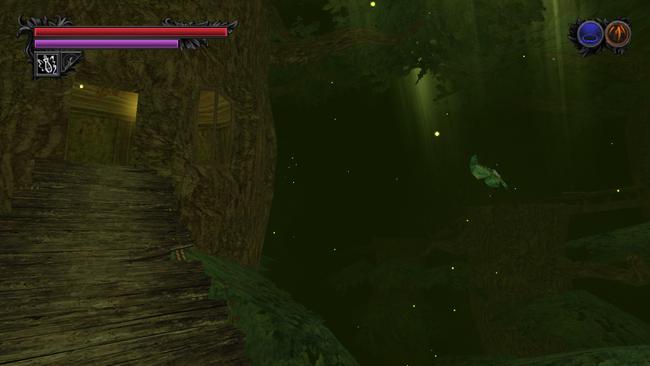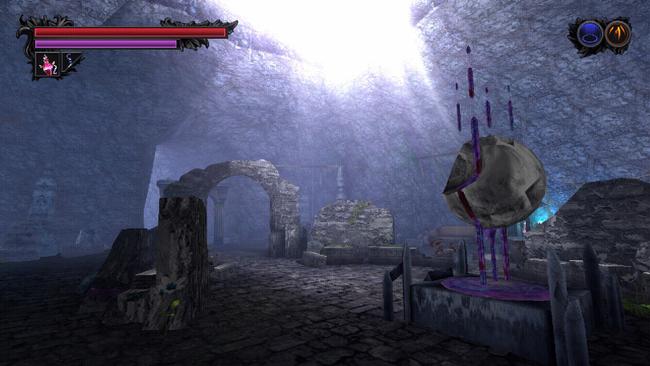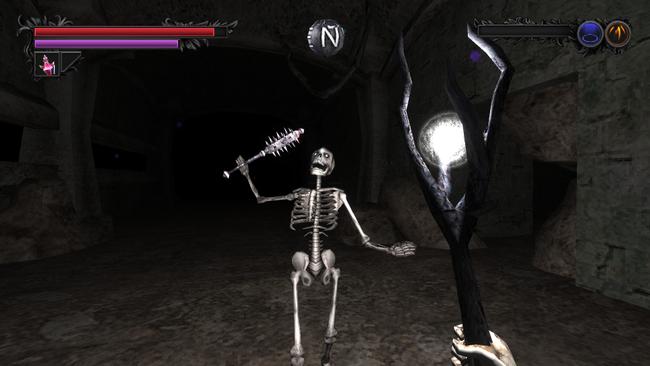
Lunacid Review
There's no use denying that Lunacid wears its inspirations on its sleeve - developer KIRA LLC even admits as much that the game takes heavy inspiration from King's Field, and From Software's lesser known back catalog. Yet, it's one thing to draw inspiration from others works; and it's another thing if your own interpretation on those ideas can stand on its own. Thankfully, Lunacid utterly succeeds at capturing the true magic of a classical dungeon crawler, while at the same time bringing it's own flair and flavor to the table.
You've all seen it before; after creating your character, you'll find yourself at the receiving end of a cutscene as you are given a bit of information about the world of Lunacid, before being unceremoniusly dumped down the Great Well; the gate to an underworld, where the enigmatic Dreamer sleeps, and none have ever managed to return. With this, and a trusty sword, you're more or less free to tackle Lunacid in (almost) any direction you choose.

Do you head down into the Silent Temple, or - if your Dexterity is high enough, do you attempt the platforming challenge into the Forbidden Archives? From the Silent Temple, do you backtrack into the Fetid Mire, or proceed to Yosei Forest - or even the Catacombs? Lunacid's world design succeeds in all the ways that the best From Software titles do, with each area host to a number of secrets both simple and obtuse, with rewards waiting for those willing to wrack their brains to discover them.
These secrets reward the player in two main ways; new weapons, and new spells. One wrinkle that Lunacid adds is how certain weapons can be enhanced after filling their XP bar; pick up a broken handle, and your reward for suffering through its uselessness is a flame blade that acts like something akin to a lightsaber. Even better, that blade's flames can illuminate the environment, so you won't have to use either a spell or a torch to make traversal easier. Maybe a certain gate will require a weapon with Light damage to open, or maybe hitting a specific window with a Blood spell will unlock the path to a hidden area.

It wasn't long before Lunacid's gameplay loop got its hooks in me; finding new weapons and spells, which allowed me to further explore the world. Having the ability to summon random coffins might seem pointless, but stacking a bunch of them on top of each other might be the difference between reaching a random ledge and stopping just short of it. That platforming challenge to the Forbidden Archive I mentioned earlier? While you could abuse your stats to make the jump, with smart use of any number of spells that can augment your movement or place objects in the environment, you can forge your own path indepedent of whatever the developer intended.
If I had one complaint with the game, it would be the relative simplicity of its combat; while flinging spells feels fun enough, melee combat feels clunky at best. It's fine enough for normal combat encounters, but the cracks really start to show whenever you challenge one of the game's boss fights. With such inflated HP, unless you're willing to seek out specific spells that trivialize the encounters it quickly becomes obvious how one-note these encounters are in practice. The final boss in particular was an exercise in frustration until I equipped the Ice Tear spell, which turned the fight from a frustrating romp to something hilariously trivial in comparison.

On an entirely different note; Lunacid's soundtrack is incredible, and really sells the vibes of the game as a waking lucid dream. All of this is enveloped in a stylized artstyle, closely resembling the PlayStation 1 releases that inpsired it; it works well, and there's a number of filters players can choose from to better suit the aesthetics. As a bonus, the game's lo-fi visuals mean that it's a perfect candidate for the Steam Deck OLED, which is where I spent the majority of my time - full 800p resolution, 90FPS, and an incredible 6 hours of battery life.
Lunacid felt like a revalation of what sort of games we could receive if developers opted to borrow from more than just Dark Souls, by looking back at some of From Software's earlier titles. It's proof that games like King's Field can and should be lauded just as much as the games that came after; and, indeed, that these esoteric experiences still have a place in today's gaming landscape. Lunacid was one of my best surprises of the year, and it gives me hope that others might follow in its footsteps. While not without its faults, Lunacid is an RPG well worth setting aside time for.